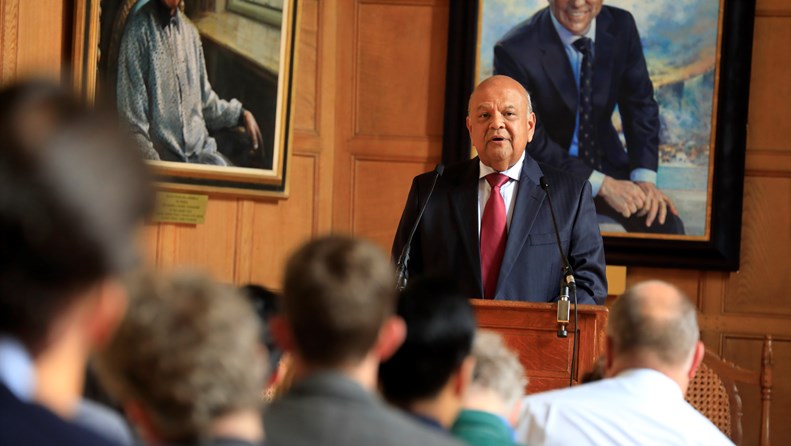Every year, we honour the memory of Bram Fischer (Orange Free State & New College 1931), one of the many Rhodes Scholars who have become pioneers of change, through a memorial lecture held at Rhodes House. Bram Fischer was a South African lawyer of Afrikaner descent who played an integral role on the defence team in the Treason Trial of 1956 – 1961, where Nelson Mandela and many other anti-apartheid activists were acquitted. Fischer once said: “What is needed is for White South Africans to shake themselves out of their complacency, a complacency intensified by the present economic boom built upon racial discrimination. Unless this whole intolerable system is changed radically and rapidly, disaster must follow. Appalling bloodshed and civil war will become inevitable because, as long as there is oppression of a majority, such oppression will be fought with increasing hatred”.
This sums up the fight Bram Fischer fought; to end apartheid and bring peace to South Africa through a joint effort to change the deep-rooted racism that had ingrained itself into the fabric of the country. By his personal example he showed that there were white South Africans who were prepared to put the interests of freedom and justice for all above their own personal interest.
Over the years we have welcomed a wide range of speakers, but a common thread is justice and Africa. This year, we were honoured to welcome Mr Pravin Jamnadas Gordhan, whose involvement in the anti-apartheid struggle goes back to the 1970s and 1980s when he was an organiser in the student movement and a prominent leader in civic structures. Over the years, Mr Gordhan has been the Minister of Finance, Minister of Cooperative Governance and Traditional Affairs, and his current role is that of Minster of Public Enterprises in South Africa. The title of this year’s lecture was ‘Principled Activism for Social Justice in a Troubled World’, in which he explored Bram Fischer’s influence on the core values of the South African meaning of justice. He noted that ‘we [South Africans] are not defined by corruption’, that a new dawn is rising from the work started by Nelson Mandela and other influential activists. Mr Gordhan discussed the struggles South Africans face in a frank and candid manner, not shying away from addressing the work that still needs to be done. An overriding theme throughout his lecture was that there needs to be a collective effort to deepen democracy. In his own words: "we are diverse, but one".
